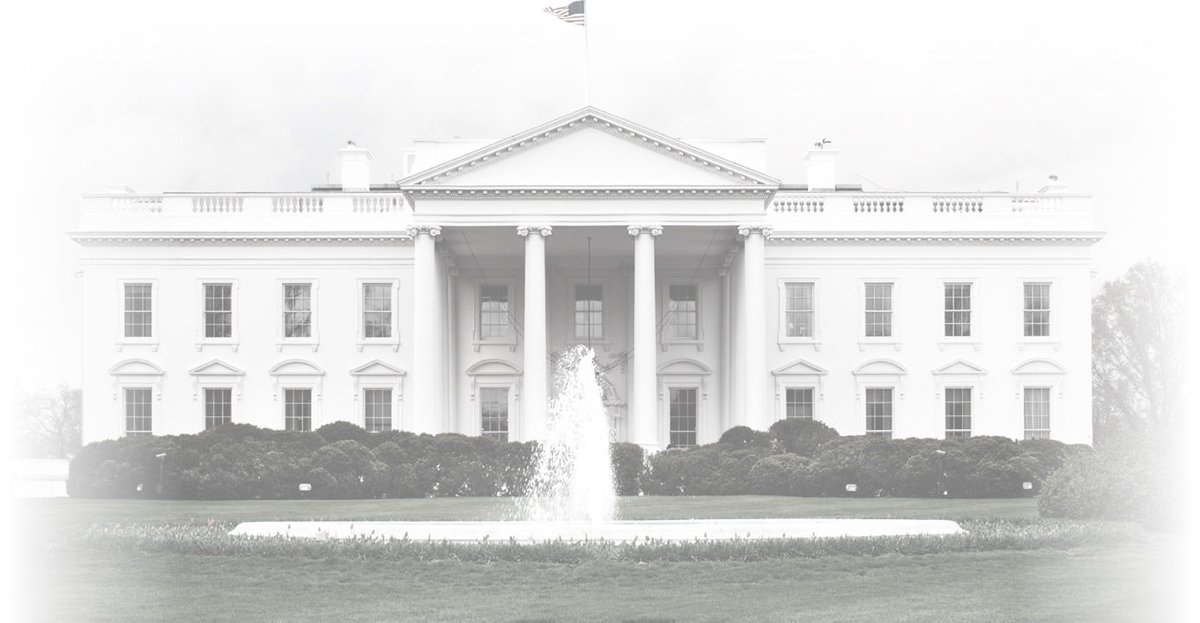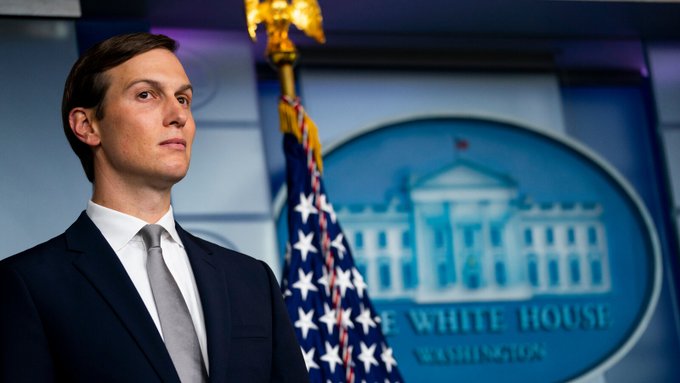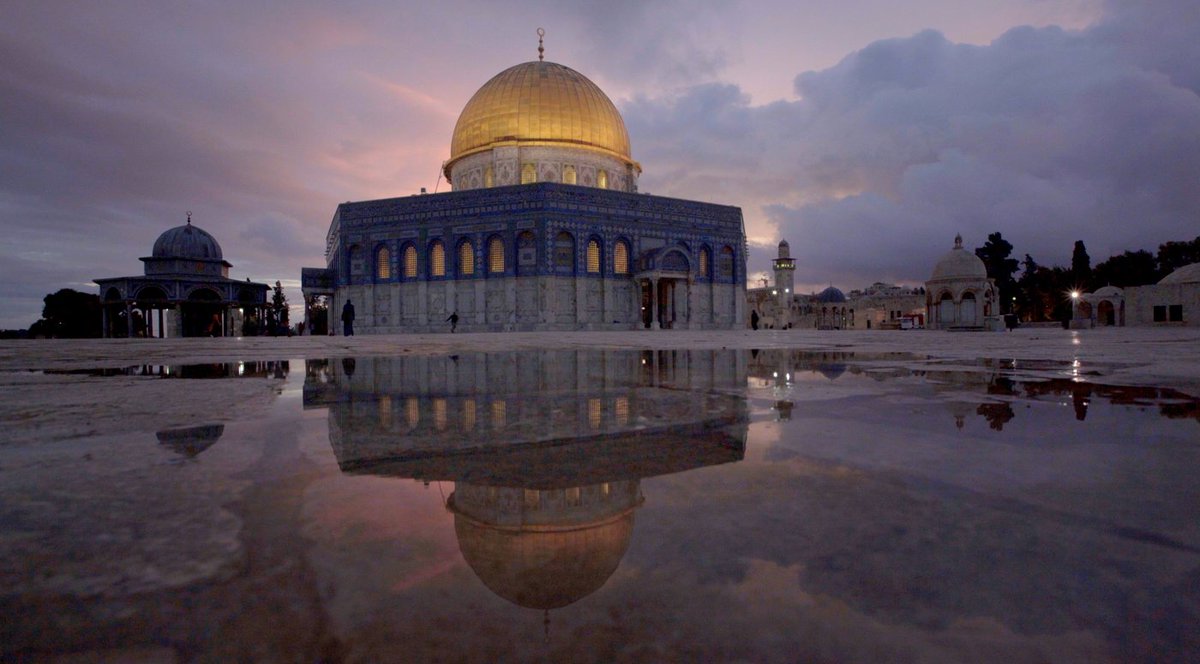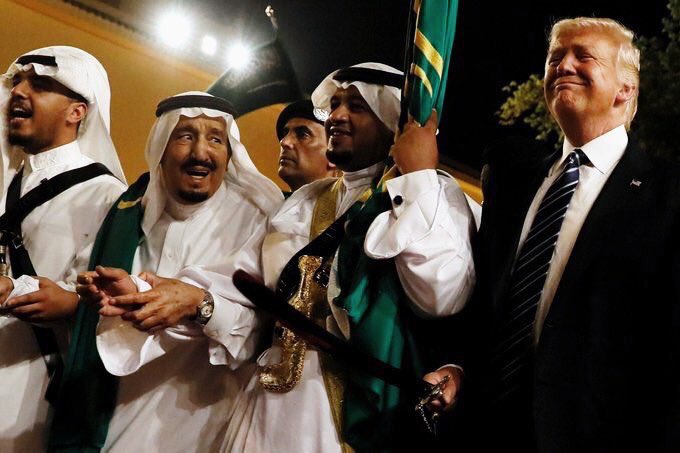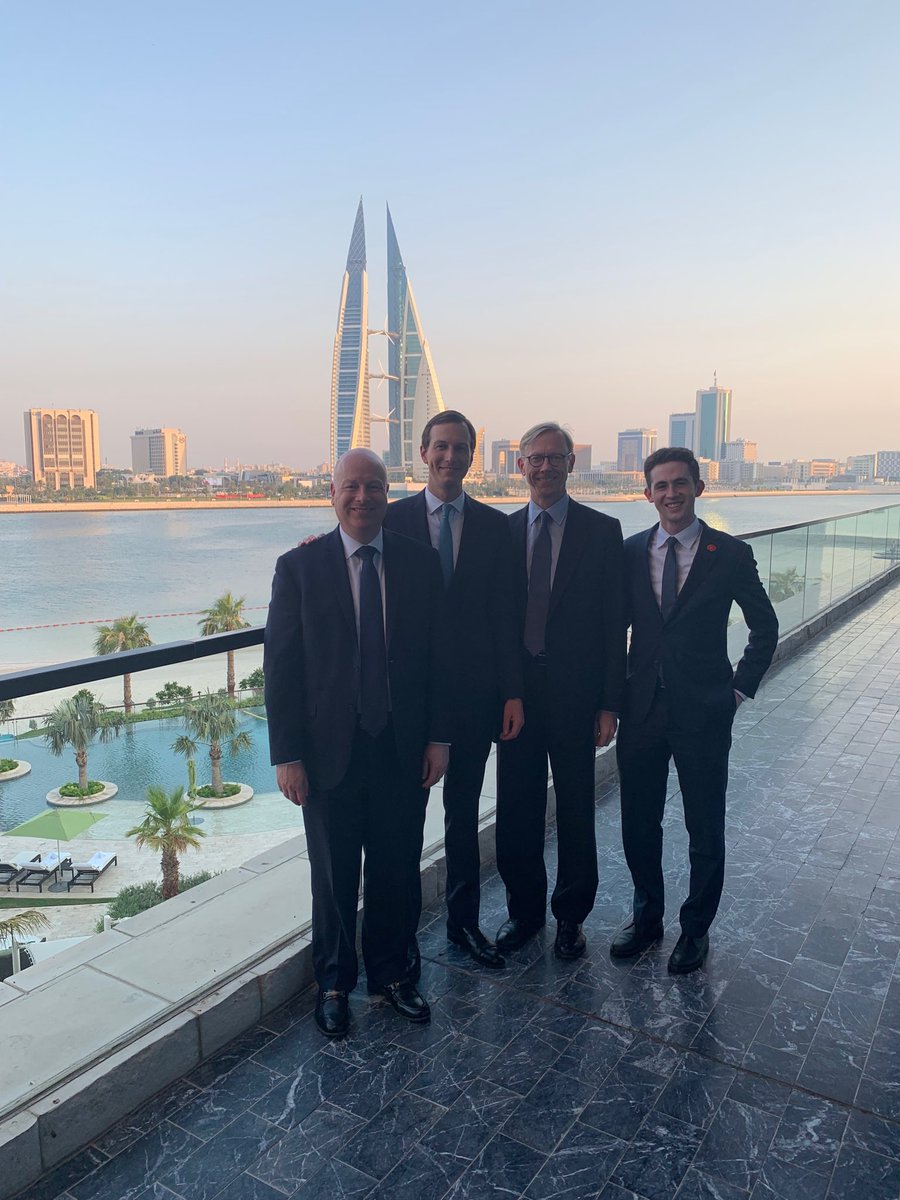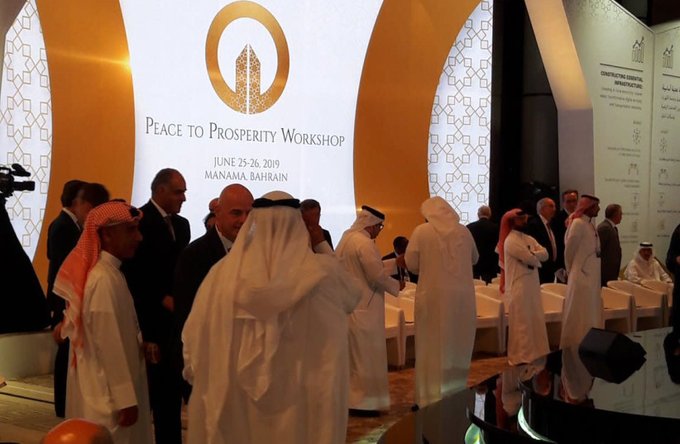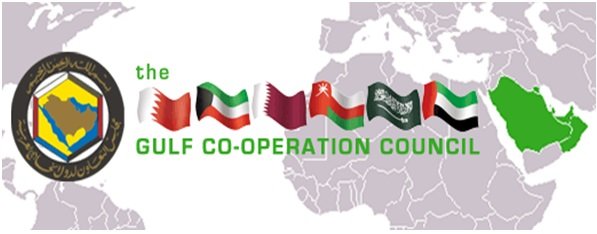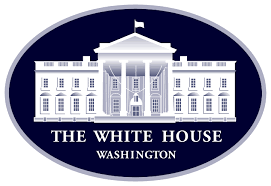The White House
Office of the Press Secretary
August 13, 2020
On-The-Record Press Call on the Historic Announcement of Full Normalization of Relations Between Israel and the United Arab Emirates
Via Teleconference • 2:10 PM EDT
https://publicpool.kinja.com/subject-on-the-record-press-call-on-the-historic-annou-1844720635?utm_medium=sharefromsite&utm_source=_twitter">https://publicpool.kinja.com/subject-o...
Office of the Press Secretary
August 13, 2020
On-The-Record Press Call on the Historic Announcement of Full Normalization of Relations Between Israel and the United Arab Emirates
Via Teleconference • 2:10 PM EDT
https://publicpool.kinja.com/subject-on-the-record-press-call-on-the-historic-annou-1844720635?utm_medium=sharefromsite&utm_source=_twitter">https://publicpool.kinja.com/subject-o...
MR. KUSHNER: Welcome, everyone to the call. I think you’ve been seeing some of the statements that have been out, but I just — I’ll go through, very quickly, just the highlights of what happened today and then obviously answer a couple of questions.
So today is really a historic day for peace and for America, for Israel, and for the United Arab Emirates. I want to start by congratulating Prime Minister Netanyahu, the Crown Prince Mohammed bin Zayed, and President Trump for this big breakthrough.
Both countries have agreed to normalize their diplomatic relations. And they’re going to be exchanging embassies and ambassadors very soon. And they’re going to work very closely together on technology, healthcare, security, and do all kinds of trade.
Obviously, you have a lot of innovation in both companies and a lot of, you know, great investors, who I’m sure will be working very hard to, you know, figure out how they can start working together very quickly.
This is also great for people of both religions; that’s why we call this the “Abraham Accords.” You have a lot of people who want to be able to pray at the al-Aqsa mosque. And they can now take flights from Abu Dhabi or Dubai to Israel to do so. This will show the Muslim world
that the mosque is open and welcome for all people to pray. That’s a narrative that a lot of the extremists and the Iranians have tried to push that they need to cause instability so that they can save the mosque. The mosque is available for people to go visit.
And then this makes it much easier for people to do that.
This has all happened in just a few short years. In the President’s first to Saudi Arabia, in May of 2017, he shared his vision for a more peaceful, secure, and prosperous region, one where nations can chart their course
This has all happened in just a few short years. In the President’s first to Saudi Arabia, in May of 2017, he shared his vision for a more peaceful, secure, and prosperous region, one where nations can chart their course
based on shared interests and values and not by being stuck in conflicts of the past.
This deal is really a testament to President Trump’s vision and leadership and deal-making ability. And this is the first peace deal in the region since 1994, when Israel normalized relations
This deal is really a testament to President Trump’s vision and leadership and deal-making ability. And this is the first peace deal in the region since 1994, when Israel normalized relations
with the Kingdom of Jordan. This really is a big, big step forward. And again, not a lot of the moves were visible for the public to see, but there was a lot of action behind the scenes. And thanks to President Trump’s leadership, we were able to make this happen.
We’ve brought together two of our closest partners in the region, and this will create a lot of opportunities for others to do the same. We hope that this is an icebreaker where Israel can now normalize with other countries.
As part of this agreement, Israel sees the potential of fully working on this relationship and others, and has agreed to suspend applying Israeli sovereignty to areas of the West Bank. And I think that that really sums it up.
So I think that we’re very excited about today.
So I think that we’re very excited about today.
This is a historic step forward, and things like this don’t happen every day. So we’re very, very proud of the accomplishment and of the step forward, and we hope that it really inspires a lot of people in the region to see the potential for what can be.
If you’re willing to be creative and take a little bit of risk, you can really move forward and create a future that you thought would be possible.
So, with that, we’ll take a couple questions.
Q Jared, thank you for doing this. A couple questions: What would you say to some of
So, with that, we’ll take a couple questions.
Q Jared, thank you for doing this. A couple questions: What would you say to some of
the people who have been watching the region, who have lived in the region, who have been dealing with the Israelis and the Emiratis for the last few years, who say this was inevitable, who say that it was just a matter of time before this happened? What would you say to that?
And in terms of your language — an “icebreaker” for Israel to normalize, inspiring other people in the region — could you talk about how far down the road you are with, I don& #39;t know, Bahrain, Oman, Morocco, and whether you hope there are other countries who do this by September?
MR. KUSHNER: Yeah, so I would say that it became inevitable because of the work that we& #39;ve done over the last three and a half years to bring everyone together. I& #39;m not really a believer in coincidence, and so this really is thanks to the diplomatic effort that we& #39;ve done.
Now, if we would’ve been telegraphing that we are working on this, it would’ve made it a lot harder for it to happen.
So I think this is something that we tried very hard to create the air of inevitability, but if you go back, it really started with the Riyadh summit that — that
So I think this is something that we tried very hard to create the air of inevitability, but if you go back, it really started with the Riyadh summit that — that
was the President’s first trip overseas, where he was really stressing the tenets of what ultimately accomplished. We had the Warsaw conference, which was a great step forward, where we, again, brought people together around a common threat. And then we had the Bahrain, Manama
summit, where we brought a lot of people together around shared economic opportunity.
And what we& #39;ve done is we& #39;ve tried very hard to facilitate a lot of engagement. And the question is — is when was somebody willing to take the step or not willing to take the step.
And what we& #39;ve done is we& #39;ve tried very hard to facilitate a lot of engagement. And the question is — is when was somebody willing to take the step or not willing to take the step.
And I just give a lot of credit to the leaders of both countries who felt like the time was right, and it’s the right way to move forward.
So, again, I can assure you that if it was — you know, without President Trump’s leadership and the hard work of my team, we would not have
So, again, I can assure you that if it was — you know, without President Trump’s leadership and the hard work of my team, we would not have
been able to move this forward, and I think that that’s what we& #39;ve been celebrating today.
The — with regard to other countries, again, I do think that this makes them more inevitable. But, again, it’s going to take hard work, and it’s going to take trust being built,
The — with regard to other countries, again, I do think that this makes them more inevitable. But, again, it’s going to take hard work, and it’s going to take trust being built,
and dialogue being facilitated in order for people to cross that line as well.
So hopefully this makes it easier for others. Many are watching to see how this goes. We have a couple who are upset that they weren’t first, but I do think that we’ll work very hard to try and create
So hopefully this makes it easier for others. Many are watching to see how this goes. We have a couple who are upset that they weren’t first, but I do think that we’ll work very hard to try and create
more and more normalizations over the coming time ahead.
Q Hi. Thank you so much for doing this, Jared. My name is Jackson Richmman and I& #39;m with Jewish News Syndicate — http://JNS.org"> http://JNS.org .
I have a couple questions. One is: Where will the UAE embassy in Israel be?
Q Hi. Thank you so much for doing this, Jared. My name is Jackson Richmman and I& #39;m with Jewish News Syndicate — http://JNS.org"> http://JNS.org .
I have a couple questions. One is: Where will the UAE embassy in Israel be?
Will it be in Jerusalem or Tel Aviv?
And my second question is: Were it not for the Iranian threat, would you have gotten this kind of deal? Is Saudi Arabia next?
MR. KUSHNER: So that’s three questions. One is I& #39;m not (inaudible) so, who is next? You will find out next.
And my second question is: Were it not for the Iranian threat, would you have gotten this kind of deal? Is Saudi Arabia next?
MR. KUSHNER: So that’s three questions. One is I& #39;m not (inaudible) so, who is next? You will find out next.
With regards to the Iran threat — look, I think that people are about shared interests. I think, you know, that situation makes people realize that they are — they have a lot more in common than, I think, they believed, and they believe that they& #39;re stronger together.
The job of both countries is to make determinations and to make decisions that will make their people safer and will make their people more prosperous. And that’s the basis through which, I believe, both leaders made the decision to move forward with this.
And then, you know, finally, I do think that, again, this really is a great breakthrough that we’re moving forward with.
Q Where will the U.S. —
MR. KUSHNER: Oh, they’ll decide that. Again, that’s not up to me. So they’ll work together.
Q Where will the U.S. —
MR. KUSHNER: Oh, they’ll decide that. Again, that’s not up to me. So they’ll work together.
I& #39;m sure they’ll find a spot and they’ll both build great embassies.
Q Hi. Thank you, guys, for doing this call. First of all, I just wanted to clarify that this was all on the record and live at the time of delivery. And I also wanted to see if you could provide any sort of
Q Hi. Thank you, guys, for doing this call. First of all, I just wanted to clarify that this was all on the record and live at the time of delivery. And I also wanted to see if you could provide any sort of
tick-tock on, you know, when and how the negotiations got started, when they sort of intensified, when, you know, you thought a deal was in sight, et cetera. Thank you.
MR. KUSHNER: Sure. First of all, I appreciate you asking that. This is on the record; you can use it.
MR. KUSHNER: Sure. First of all, I appreciate you asking that. This is on the record; you can use it.
So this is something that we& #39;ve been having discussions about for about a year and a half. And I would say that they became a little bit more serious after we laid out our vision for peace. That caught the eye of a lot of regional players because they saw that Israel, for the
first time, was willing to really make concessions to resolve this old conflict. And they saw a very credible offer put on the table that the Palestinians did their same reactive rejection of before they even saw the substance of it.
So I think that made a lot of people reexamine whether they should be waiting for the Palestinians, and so a lot of them were looking at what& #39;s in the interest of their country. I think the conclusion for UAE and others is that a lot of their citizens would like to have the
ability to fly to Israel to do business, to invest in some of the great technology and healthcare companies that exist there. And then, most importantly, a lot of their citizens would like to have access to go and pray at the Al-Aqsa Mosque.
And so this is something that was very intriguing to a lot of people. And the way that the Palestinians handled the rollout of our vision for peace just reassured them that they were going to be waiting for the Palestinians to make the — leadership to make the right decision,
and they would be waiting a very, very long time.
So as Israel was thinking of applying Israeli sovereignty and Israeli law to different areas of the West Bank, that obviously was something that UAE felt would — would set back all of the advancements that we& #39;ve made in the
So as Israel was thinking of applying Israeli sovereignty and Israeli law to different areas of the West Bank, that obviously was something that UAE felt would — would set back all of the advancements that we& #39;ve made in the
region. So you saw Ambassador Otaiba put forth an op-ed saying that. After that, we started a discussion with UAE saying, “Well, maybe this is something that we can do, that — that shows that that’s a much greater interest to Israel in the short, medium, and long term than
applying Israeli sovereignty, even though we believe that that’s a good step for them to do.
And — but this would be a much more strategic step forward, and give much more benefit to their people, less risk, and create less controversy.
And — but this would be a much more strategic step forward, and give much more benefit to their people, less risk, and create less controversy.
And they thought that that was worth pursuing under the right terms.
So, we spoke with Israel about it. And over the last six weeks, we’ve had extensive discussions, and it led us to today. And so, we finished an agreement, in principle, about a week ago, and then finalized all
So, we spoke with Israel about it. And over the last six weeks, we’ve had extensive discussions, and it led us to today. And so, we finished an agreement, in principle, about a week ago, and then finalized all
the details yesterday. And that — that allowed us to make the announcement today, where the three leaders wanted to get on the phone with each other to congratulate each other and just to state how excited they are to have this pivotal moment in the region, where this really
changes the trajectory of what people believe is possible and it gives people something to be very hopeful about.
Look, we& #39;re in the time of a global pandemic and a time of a global economic uncertainty. It& #39;s not just here in America; it& #39;s in every country in the world. And —
Look, we& #39;re in the time of a global pandemic and a time of a global economic uncertainty. It& #39;s not just here in America; it& #39;s in every country in the world. And —
and what this does is it shows people in the region that we don& #39;t have to be captive to old conflicts and old thinking. We can think about new things, new ideas, new exciting paradigms. And if we& #39;re willing to have a little bit of courage and a little bit of creativity and
good leaders, then anything is possible.
So I do think today is going to be a major turning point in the Middle East. And this really happened because of the trust that President Trump has been able to restore with both leaders and between our countries.
Maybe one more question
So I do think today is going to be a major turning point in the Middle East. And this really happened because of the trust that President Trump has been able to restore with both leaders and between our countries.
Maybe one more question
Q Hi, Jared. Thank you for doing this. And congratulations. If you can tell us a bit more maybe on the phone call today, between President Trump, Mr. Netanyahu, and Crown Prince bin Zayed, and whether you spoke to both Netanyahu and bin Zayed in the days leading to this agreement
And what can you tell us about that?
MR. KUSHNER: Yeah, so, first of all, Barak, I know we did a good job keeping it a secret, because even you couldn& #39;t break it. (Laughter.) Because I think that in Israel, you have —
Q Don& #39;t get used to it, Jared. Don& #39;t get used to it.
MR. KUSHNER: Yeah, so, first of all, Barak, I know we did a good job keeping it a secret, because even you couldn& #39;t break it. (Laughter.) Because I think that in Israel, you have —
Q Don& #39;t get used to it, Jared. Don& #39;t get used to it.
MR. KUSHNER: Yeah, I think that that in Israel, there& #39;s Barak Ravid and then there’s the Mossad. So, you know, so I — (laughter) — I think that the fact that we got this without even you picking it up was a — was maybe a — that was a very big accomplishment for us.
The — what I would say is the discussion between the leaders was — was phenomenal. You know, everyone was very excited and everyone realizes the weight of how critical this is and what a pivotabl — pivotal moment this is for the region.
They all expressed their appreciation to the President for his leadership and his focus that he& #39;s put on this issue, and also for great work that he& #39;s done in the region. You know, I think the — the work that President Trump has done in the Middle East is very underrated,
especially when you think about, you know, what happened in the Middle East during the previous eight years. I mean, there was turning over governments — you know, terrorists running wild, taking over places. You had governments failing.
And all of our traditional allies felt totally abandoned. And then Iran, which is a state sponsor of terror throughout the region, was basically given a glide path to nuclear weapons and $150 billion, which they used to — to fund more of their proxies that were just trying to
cause more instability throughout the region. So when we got there — and Syria was in a civil war, and it was very active.
So when we got there, it was a total mess. And people appreciate how the President has methodically rebuilt the relationships. And he& #39;s — and he& #39;s used
So when we got there, it was a total mess. And people appreciate how the President has methodically rebuilt the relationships. And he& #39;s — and he& #39;s used
those relationships to try to just, you know, keep checking off problems that he& #39;s been solving.
And I do think that we& #39;re building great momentum. And, again, if the President is given four more years, I do think we& #39;re going to see a tremendous change in peace and economic
And I do think that we& #39;re building great momentum. And, again, if the President is given four more years, I do think we& #39;re going to see a tremendous change in peace and economic
opportunity in that region.
On the call, both leaders expressed their appreciation and had a real desire to figure out how we can just get going, and move to the next phases.
And then with regards to your other question: Yes, I& #39;ve had conversations directly with MBZ and Prime
On the call, both leaders expressed their appreciation and had a real desire to figure out how we can just get going, and move to the next phases.
And then with regards to your other question: Yes, I& #39;ve had conversations directly with MBZ and Prime
Minister Netanyahu over the last weeks, days. And, again, just working through everything and making sure that both sides felt comfortable with moving forward and with all the different things that were important to them.

 Read on Twitter
Read on Twitter